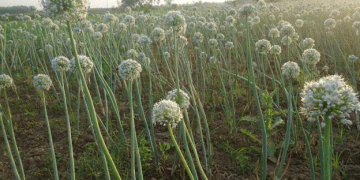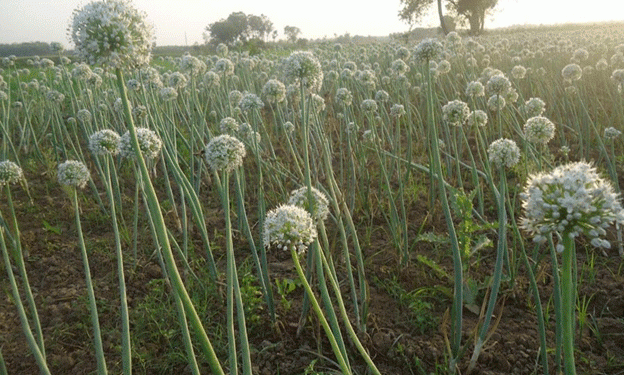In a recent agricultural crisis in Bangladesh, approximately 16,000 farmers found themselves struggling with failed onion crops due to receiving poor-quality seeds from the Bangladesh Agriculture Development Corporation (BADC). These farmers, part of a broader group of 34,000 who had received onion seeds as part of a government initiative through the Department of Agricultural Extension (DAE), were devastated when 95% of their onion seedlings failed to sprout, despite following all proper procedures for planting.
The Seed Crisis: Low-Quality Seeds Lead to Losses
The crisis began when farmers across Bangladesh were supplied with onion seeds that were later discovered to be substandard. Despite their timely planting and care, the onion crops failed to grow, and the farmers were left with significant losses. These seeds were part of a larger government initiative aimed at boosting onion production in the country, but the poor quality of the seeds undermined the effort. The seeds were reportedly imported by a corrupt group within the BADC who allegedly misused funds intended for quality seed procurement. The seeds failed to meet the necessary standards, leading to a crop failure that deeply impacted the agricultural community.
Government Response: Fresh Seeds Delivered
In response to the crisis, the Ministry of Agriculture acted swiftly to provide affected farmers with fresh onion seeds sourced both locally and internationally. A total of 34 tonnes of new onion seeds were distributed to 59 districts to help restore the damage caused by the counterfeit seeds. The initiative was part of an emergency response to ensure that farmers could continue their work and hopefully salvage their season. This distribution of fresh seeds provided a much-needed lifeline to the farmers who had watched their fields fail due to the initial seed debacle.
Accountability for the Crisis
To address the situation internally, the Ministry of Agriculture took action against the officials responsible for the seed crisis. Two BADC officials were temporarily suspended for their alleged involvement in the purchase of low-quality seeds. This corruption led to the mismanagement of resources, resulting in the distribution of substandard seeds and a significant financial loss to the agricultural sector. The ministry’s swift response highlights the importance of accountability within agricultural development agencies.
The Path Forward for Onion Production
While the immediate crisis has been addressed with the distribution of fresh seeds, the impact of the poor-quality seeds is still being felt. Farmers who had invested their time and resources into cultivating onions based on the initial distribution are now left to recover from their losses. However, the government’s intervention has helped restore some hope among the farmers, as they now have the opportunity to plant fresh, quality seeds that are expected to yield better results.
Onion production is a key part of Bangladesh’s agricultural sector, and the crisis has highlighted the need for continued vigilance in seed quality management. Ensuring that farmers receive high-quality inputs is essential for the country’s agricultural sustainability and for the livelihoods of thousands of farmers.
The onion seed crisis in Bangladesh has underscored the vital role that quality seeds play in agricultural productivity. The actions taken by the Ministry of Agriculture, from the emergency distribution of fresh seeds to the suspension of corrupt officials, demonstrate a strong commitment to resolving the issue. Moving forward, ensuring the transparency and accountability of seed distribution will be crucial in preventing similar crises and ensuring the success of future agricultural initiatives.































